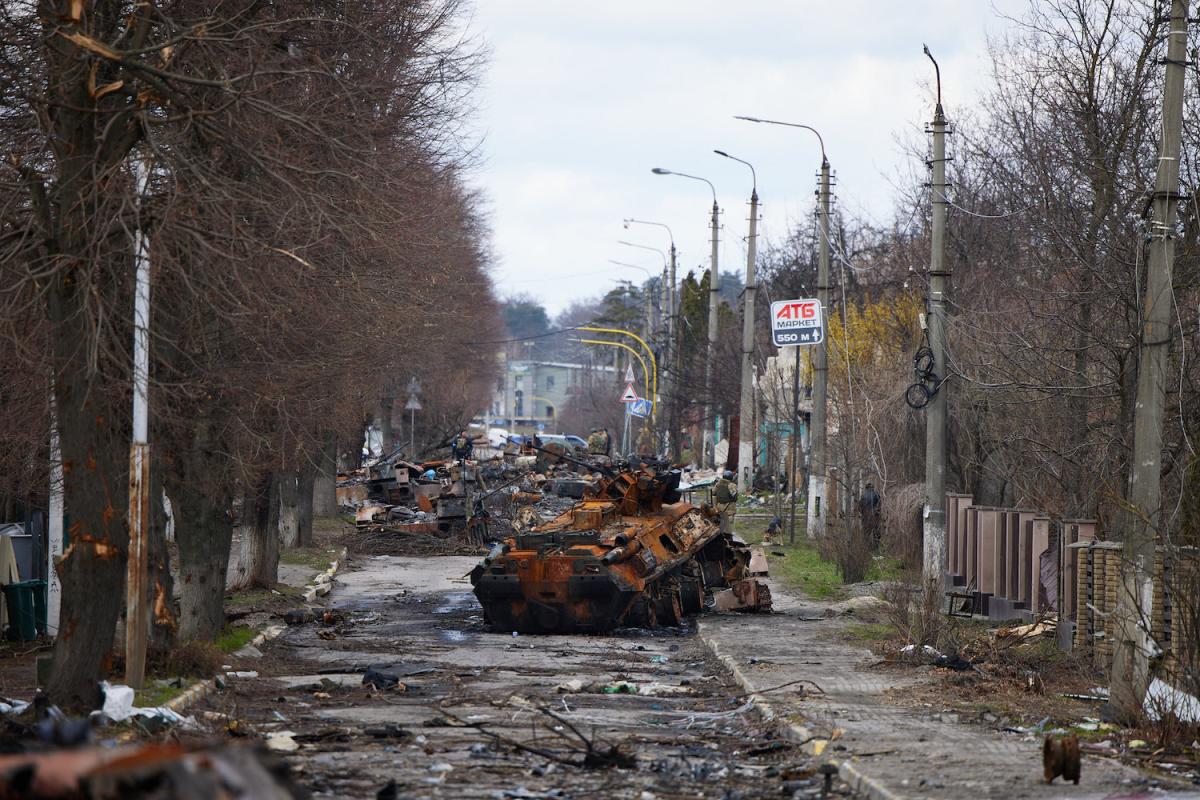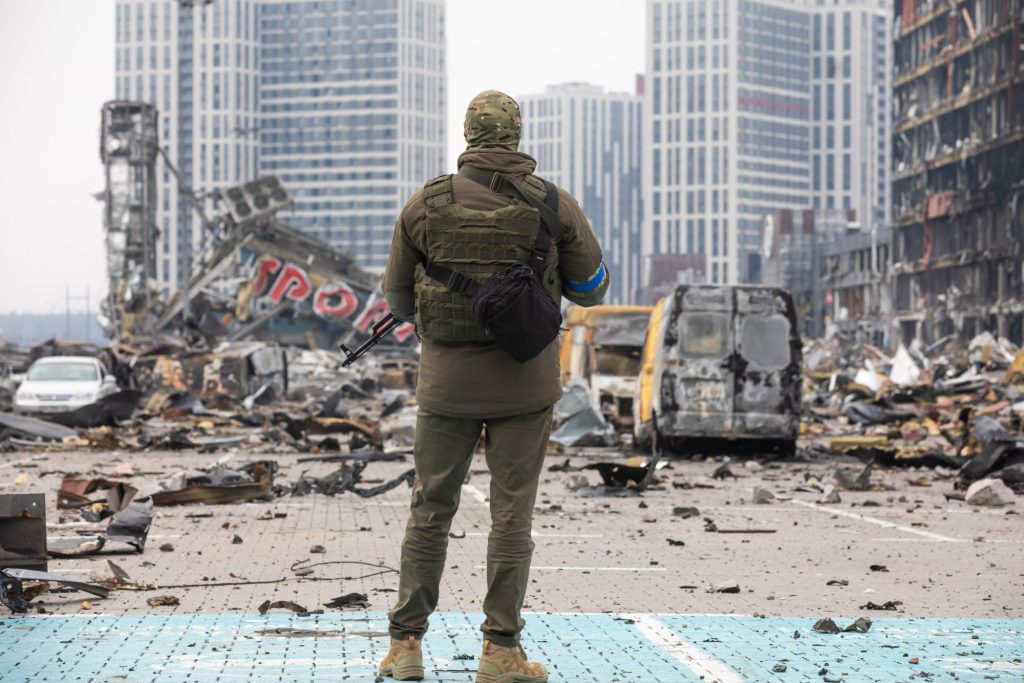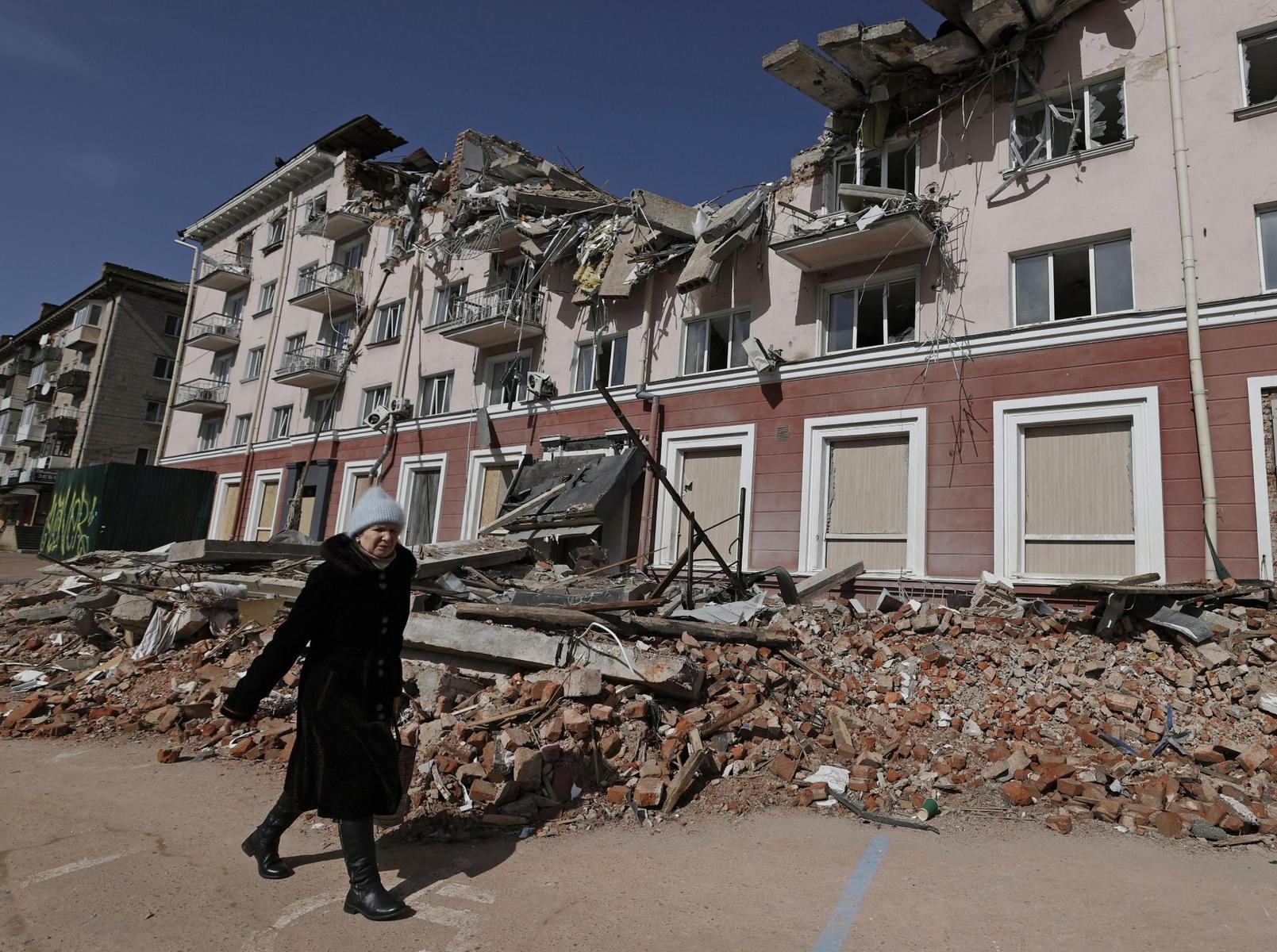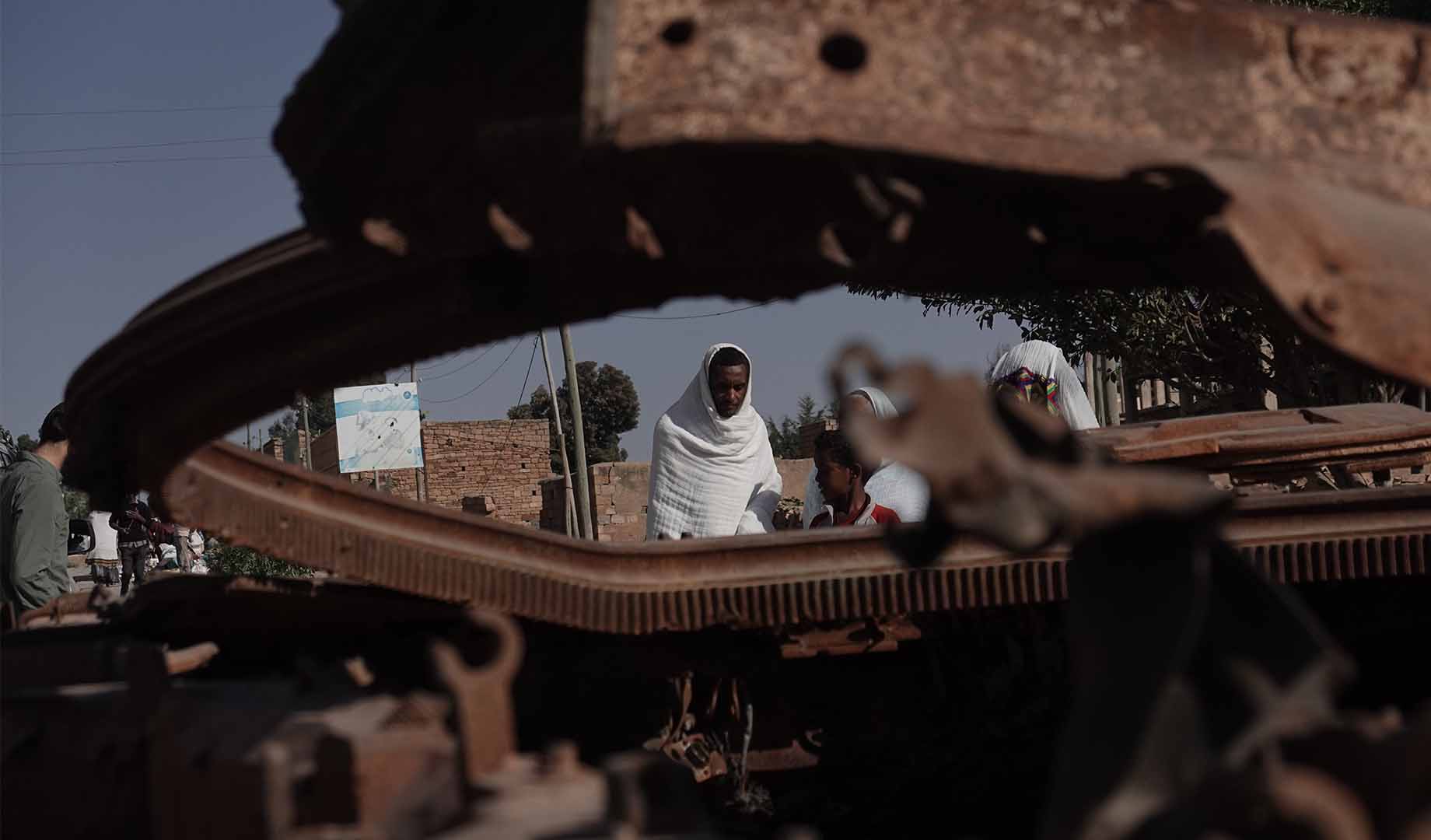Post-War Reconstruction And Health - Healing After The Conflict
War leaves in its wake not only physical devastation but also profound impacts on public health. As nations emerge from the chaos of conflict, the process of post-war reconstruction becomes imperative, with a central focus on rebuilding not just infrastructure but also the health and well-being of affected populations. This article delves into the multifaceted aspects of post-war reconstruction and health.
Author:Suleman ShahReviewer:Han JuFeb 07, 20241.3K Shares188.1K Views
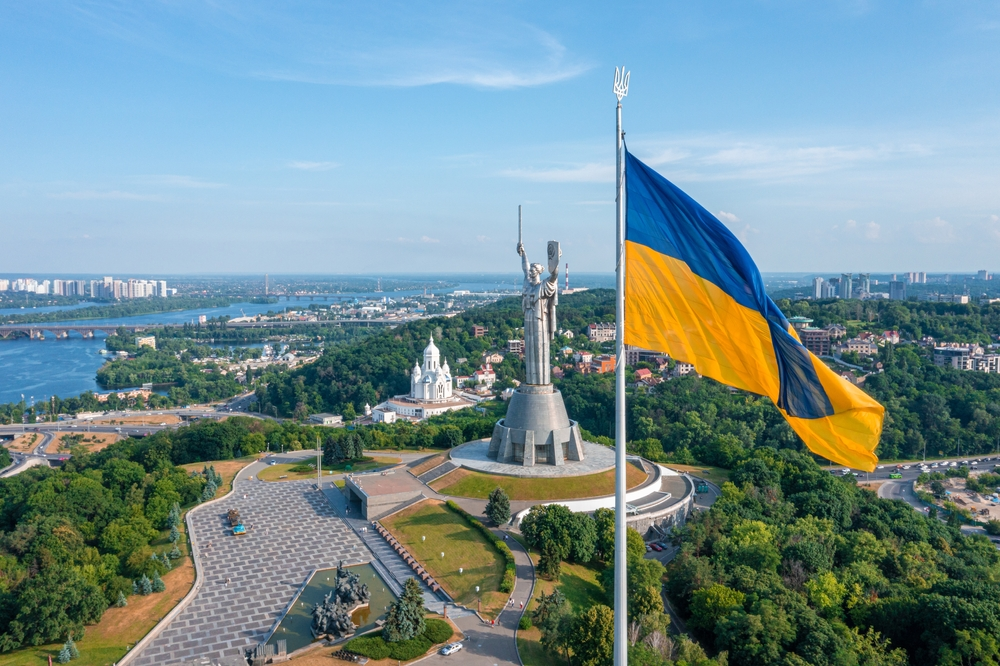
War is a big business, but leaves in its wake not only physical devastation but also profound impacts on public health. As nations emerge from the chaos of conflict, the process of post-war reconstruction becomes imperative, with a central focus on rebuilding not just infrastructure but also the health and well-being of affected populations. This article delves into the multifaceted aspects ofpost-war reconstruction and health.
Understanding The Health Toll Of War
Physical And Mental Health Challenges
The aftermath of war casts a profound shadow on the health of individuals and entire communities. The toll extends far beyond the visible scars of physical injuries, delving into the intricate realm of mental health. This section explores the multifaceted challenges, embracing both the tangible consequences of war-induced injuries and the silent, yet pervasive, wounds etched onto the psyche of survivors.
Physical Injuries
The physical toll of war is immediately apparent, with injuries ranging from battlefield traumas to the long-term consequences of exposure to hazardous environments. Traumatic injuries, amputations, and debilitating conditions become emblematic of the sacrifices made during conflict. The rehabilitation and medical care required for these injuries become integral components of post-war reconstruction efforts.
Mental Health Struggles
In the aftermath of conflict, mental health emerges as a critical battleground, often overshadowed by the visibility of physical injuries. Post-traumatic stress disorder(PTSD), anxiety, and depression permeate the lives of those who have experienced the horrors of war firsthand. The psychological scars run deep, affecting individuals long after the guns fall silent.
Diversity In Healthcare Needs
The healthcare needs of post-conflict societies are diverse, reflecting the varied nature of injuries and mental health challenges. Rehabilitation services for physical injuries must coexist with mental health support systems, creating a comprehensive healthcare approach that addresses the unique needs of individuals and communities attempting to rebuild amidst the aftermath of war.
Demanding Care
The demand for healthcare in post-conflict environments is complex, requiring a delicate balance between urgent medical interventions and long-term mental health support. Healthcare systems must adapt to cater to the spectrum of needs, ensuring accessibility and effectiveness in the face of multifaceted health challenges.
Rebuilding Healthcare Infrastructure
Resurrecting The Pillars Of Health
In the aftermath of war, the once-sturdy pillars of healthcare infrastructure often lay in ruins, imposing a pressing need for comprehensive reconstruction. This section explores the intricacies of rebuilding medical facilities and rejuvenating the healthcare workforce, crucial components in the broader canvas of post-war reconstruction efforts.
Reconstructing Medical Facilities
One of the foremost challenges confronting nations emerging from conflict is the resurrection of healthcare facilities that may have been decimated during the tumult of war. Hospitals, clinics, and healthcare centers, once vibrant symbols of healing, now demand meticulous reconstruction. The rebuilding process extends beyond mere physical structures; it entails revitalizing the entire ecosystem of healthcare delivery to ensure the provision of essential services.
- Strategic Planning for Reconstruction:Crafting a strategic plan for the reconstruction of medical facilities is imperative. This involves assessing the extent of damage, prioritizing areas of urgent need, and envisioning a resilient healthcare infrastructure capable of withstanding future challenges.
- TechnologyIntegration:Incorporating modern technologies becomes an integral aspect of rebuilding medical facilities. From state-of-the-art medical equipment to digital health systems, technology plays a pivotal role in enhancing the efficiency and efficacy of healthcare services.
- Ensuring Accessibility:The reconstruction efforts must prioritize geographical accessibility, especially in rural or remote areas that may have been disproportionately affected during conflict. Ensuring that healthcare services are within reach of all citizens fosters a more inclusive and equitable system.
Training Healthcare Professionals - Nurturing The Healing Hands
The toll of conflict extends beyond the physical landscape, impacting the very fabric of healthcare personnel. The healthcare workforce, often depleted due to casualties or displacement, becomes a focal point in the reconstruction narrative. Robust programs for training and rehabilitating healthcare professionals are essential for re-establishing a capable and compassionate workforce.
- Comprehensive Training Programs:Post-war reconstruction initiatives must encompass comprehensive training programs, addressing both the immediate and evolving healthcare needs of the population. Continuous medical education ensures that healthcare professionals are equipped to handle the diverse challenges arising from the aftermath of conflict.
- Psychological Support for Healthcare Workers:The mental health of healthcare professionals cannot be overlooked. The trauma experienced during war leaves an indelible mark on these caregivers. Including psychological support services in training programs helps healthcare workers cope with the emotional toll of their profession.
- Incentivizing Recruitment:In the wake of conflict, attracting and retaining healthcare professionals becomes a critical task. Incentive programs, competitive salaries, and opportunities for career advancement are pivotal components in rebuilding a sustainable and motivated healthcare workforce.
Addressing Mental Health
Healing The Unseen Wounds - Prioritizing Mental Well-being
In the aftermath of war, the silent echoes of psychological trauma reverberate through the lives of individuals and communities. This section delves into the imperative of addressing mental health challenges, emphasizing the pivotal role of psychosocial support programs and community-based initiatives in fostering healing and resilience.
Psychosocial Support Programs - Nurturing The Mind And Soul
The invisible scars left by the trauma of war often go unnoticed, overshadowed by more visible physical injuries. Recognizing the profound impact on mental health, implementing psychosocial support programs emerges as a critical component of post-war reconstruction efforts.
- Counseling and TherapyServices:Psychosocial support programs encompass a spectrum of services, including counseling and therapy tailored to the unique needs of individuals who have endured the ravages of conflict. Trained mental health professionals provide a safe space for individuals to process their experiences and navigate the complexities of post-traumatic stress.
- Holistic Approaches to Healing:Beyond traditional therapeutic interventions, holistic approaches such as art therapy, mindfulness, and group activities can be integrated into psychosocial support programs. These endeavors empower individuals to express themselves creatively and build resilience through shared experiences.
- Targeted Interventions for Vulnerable Groups:Recognizing the diverse mental health needs within post-conflict populations, psychosocial support programs should offer targeted interventions for vulnerable groups, including children, women, and those who may have faced specific traumas during the conflict.
Community-Based Mental Health Initiatives - Breaking The Chains Of Stigma
Addressing mental health in post-war settings requires a community-centric approach that destigmatizes the discourse around psychological well-being. Community-based mental health initiatives play a pivotal role in fostering understanding, empathy, and a supportive environment.
- Counseling and Support Groups:Establishing community-based counseling services and support groups creates spaces where individuals can share their experiences and receive peer support. These initiatives contribute to breaking down the isolation that often accompanies mental health challenges.
- Awareness Campaigns:Community-based initiatives should include robust awareness campaigns to educate the public about mental health, debunk myths, and encourage open conversations. By normalizing discussions around mental health, these campaigns contribute to eradicating the pervasive stigma that can hinder individuals from seeking help.
- Integration with Existing Community Structures:Community-based mental health initiatives are most effective when integrated into existing community structures. Leveraging local leaders, religious institutions, and community organizations helps ensure that mental health support becomes an integral part of the societal fabric.
Rebuilding For The Vulnerable
Safeguarding The Health Of The Displaced - A Moral Imperative
In the wake of conflict, a grim reality emerges — mass displacement of populations, leaving vulnerable communities in precarious health situations. This section underscores the urgency of post-war reconstruction efforts to address the unique healthcare needs of displaced individuals, with a specific focus on the health of children and women.
Healthcare For Displaced Populations - Bridging The Gaps
Mass displacement, a harrowing consequence of conflict, thrusts vulnerable populations into unfamiliar and often perilous environments. Post-war reconstruction efforts must prioritize the provision of healthcare services for these displaced individuals, recognizing and addressing the distinctive challenges they face.
- Mobile Healthcare Units:Deploying mobile healthcare units becomes crucial in reaching displaced populations in remote or inaccessible areas. These units serve as lifelines, delivering essential medical care and preventive services to those who have been uprooted from their homes.
- Collaboration with Humanitarian Organizations:Collaborative efforts with humanitarian organizations are essential to ensure a coordinated response to the healthcare needs of displaced populations. This involves not only immediate medical interventions but also long-term strategies to rebuild healthcare infrastructure in areas where displaced individuals may eventually settle.
- Mental Health Support Services:Displacement often amplifies the psychological toll of conflict. Therefore, post-war reconstruction efforts must incorporate mental health support services specifically tailored for displaced populations, acknowledging the trauma and upheaval they have experienced.
Children And Women's Health - A Priority Within Reconstruction
Children and women constitute particularly vulnerable groups during and after conflict, facing unique health challenges that demand targeted interventions. Post-war reconstruction efforts must prioritize and tailor healthcare services to address the specific needs of these populations.
- Pediatric Healthcare Services:Ensuring accessible and comprehensive healthcare services for children is paramount. This includes vaccinations, nutritional support, and specialized care for the physical and psychological well-being of children affected by conflict.
- Maternal Health Initiatives:Women, especially pregnant women, face heightened vulnerabilities during conflict and displacement. Post-war reconstruction must include initiatives to provide comprehensive maternal health services, including prenatal care, safe childbirth facilities, and postnatal support.
- Education and Awareness Programs:Empowering women and families through education and awareness programs contributes to improved health outcomes. These initiatives may focus on family planning, nutrition, and hygiene practices, fostering a culture of health and well-being within displaced communities.
Collaborative International Efforts
Global Solidarity In Healing - Harnessing Collective Strength
Post-war reconstruction transcends national borders, calling for a united front to heal the wounds of conflict. This section underscores the significance of global partnerships in healthcare, highlighting the pivotal roles played by international organizations, non-governmental organizations (NGOs) and Think Tanks, and donor countries in supporting and advancing healthcare initiatives.
International Organizations: Coordinating Global Healing
Global health challenges demand global solutions, and international organizations stand at the forefront of collaborative efforts in post-war reconstruction. Entities such as the World Health Organization (WHO) and the International Committee of the Red Cross (ICRC) wield their expertise and influence to coordinate and guide healthcare initiatives on an international scale.
Post-War Reconstruction And Health - FAQs
What Is Post War Reconstruction?
Post-war reconstruction refers to the process of rebuilding and revitalizing societies, economies, and infrastructure in the aftermath of a conflict or war. This comprehensive effort aims to restore stability, promote economic development, address social issues, and reestablish governance structures. The reconstruction process encompasses various sectors, including healthcare, education, infrastructure, and the economy, with the goal of fostering sustainable growth and resilience in societies that have been adversely affected by war.
Who Is Responsible For Rebuilding After A War?
The responsibility for rebuilding after a war is typically shared among multiple stakeholders, including the affected nation's government, international organizations, non-governmental organizations (NGOs), and donor countries. The affected government plays a central role in coordinating reconstruction efforts, implementing policies, and overseeing the restoration of essential services. International organizations, NGOs, and donor countries contribute financial aid, expertise, and resources to support the affected nation in rebuilding infrastructure, restoring basic services, and promoting long-term stability.
What Is An Example Of Post-conflict Reconstruction?
An example of post-conflict reconstruction is the rebuilding efforts in Bosnia and Herzegovina following the Bosnian War(1992-1995). After the conflict, the international community, including organizations like the United Nations and the European Union, played a significant role in supporting reconstruction initiatives. Efforts included rebuilding infrastructure such as bridges and roads, establishing mechanisms for transitional justice, and fostering economic development. Local and international actors collaborated to address the complex challenges of rebuilding a society torn apart by war, demonstrating the collaborative and multifaceted nature of post-conflict reconstruction.
Conclusion
Post-war reconstruction goes beyond rebuilding physical structures; it involves nurturing the health and well-being of societies shattered by conflict. By prioritizing healthcare infrastructure, mental health support, disease prevention, and targeted efforts for vulnerable populations, nations can embark on a pathway to healing. The journey may be long, but with concerted efforts and global collaboration, post-war reconstruction can sow the seeds of a healthier and more resilient future.

Suleman Shah
Author
Suleman Shah is a researcher and freelance writer. As a researcher, he has worked with MNS University of Agriculture, Multan (Pakistan) and Texas A & M University (USA). He regularly writes science articles and blogs for science news website immersse.com and open access publishers OA Publishing London and Scientific Times. He loves to keep himself updated on scientific developments and convert these developments into everyday language to update the readers about the developments in the scientific era. His primary research focus is Plant sciences, and he contributed to this field by publishing his research in scientific journals and presenting his work at many Conferences.
Shah graduated from the University of Agriculture Faisalabad (Pakistan) and started his professional carrier with Jaffer Agro Services and later with the Agriculture Department of the Government of Pakistan. His research interest compelled and attracted him to proceed with his carrier in Plant sciences research. So, he started his Ph.D. in Soil Science at MNS University of Agriculture Multan (Pakistan). Later, he started working as a visiting scholar with Texas A&M University (USA).
Shah’s experience with big Open Excess publishers like Springers, Frontiers, MDPI, etc., testified to his belief in Open Access as a barrier-removing mechanism between researchers and the readers of their research. Shah believes that Open Access is revolutionizing the publication process and benefitting research in all fields.

Han Ju
Reviewer
Hello! I'm Han Ju, the heart behind World Wide Journals. My life is a unique tapestry woven from the threads of news, spirituality, and science, enriched by melodies from my guitar. Raised amidst tales of the ancient and the arcane, I developed a keen eye for the stories that truly matter. Through my work, I seek to bridge the seen with the unseen, marrying the rigor of science with the depth of spirituality.
Each article at World Wide Journals is a piece of this ongoing quest, blending analysis with personal reflection. Whether exploring quantum frontiers or strumming chords under the stars, my aim is to inspire and provoke thought, inviting you into a world where every discovery is a note in the grand symphony of existence.
Welcome aboard this journey of insight and exploration, where curiosity leads and music guides.
Latest Articles
Popular Articles
